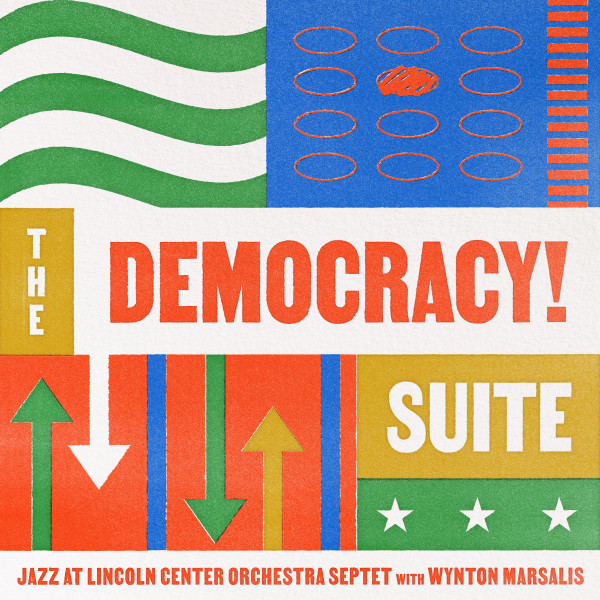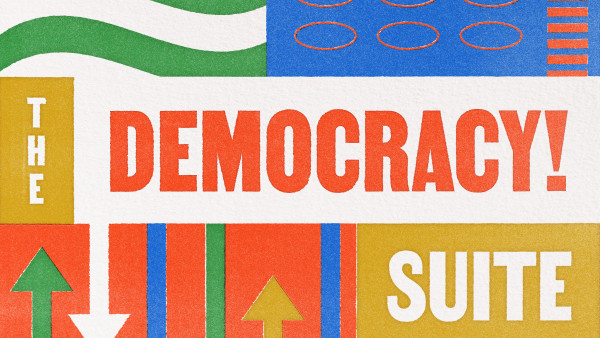Wynton Marsalis and the Jazz at Lincoln Center Orchestra Septet in Pennsylvania
For JazzTimes’ (and this writer’s) first time back to physical, face-front-to-the-stage live performance in more than a year, one thing was certain: It was spooky. George-Romero-_Night-of-the-Living-Dead_-flesh-eating-ghouls-spooky-meets-Dustin Hoffman-Morgan-Freeman-Outbreak-style-spooky, what with the venue’s house lights remaining up during the show and a (literally) spaced-out audience in masked, rapt attention. And yet it was all so cathartic too, joyous and holy. In part, that was because the audience on this mid-April night was sharing its first communal musical experience in many a month. Mostly, though, the socially distanced crowd at the historic Bucks County Playhouse in New Hope, Pa., was wowed by the calming, chatty presence of jazz emissary/éminence grise Wynton Marsalis, who, with his Jazz at Lincoln Center Orchestra Septet, played heartily from his recently released protest-prayer songbook, The Democracy! Suite.
With pre-BLM totems Max Roach and Oscar Brown’s tumultuous We Insist!, Sonny Rollins’ Freedom Suite, and his own Blood on the Fields as spirit guides, Marsalis’ Democracy! portrays righteous indignation just as it does sorrow—all with an eye toward peaceful resolution and, based on the sound of its cheerier songs in concert (e.g., the zig-zagging, Carl Stalling-like “Ballot Box Bounce”), rowdy celebration.
“We’re all struggling to deal with all of the demands of democracy, as a nation,” Marsalis said from his New York City office before the Bucks County concert. “I put an exclamation point on ‘Democracy,’ without at first knowing why. But I grew up in the ’60s, which was consciousness central, so there’s that. The biting edge of We Insist! is more a part of my Ever Fonky Lowdown from 2020. Democracy! is more like a healing balm.
“With me,” he continued, “it’s never this or that. It’s always, we can play this and we can play that.”
Both were well apparent in the septet’s finessed mix of the funereal, the coolly cosmopolitan, and the ever funky. After welcoming the assembled to “a good communal night in here,” Marsalis lightly touched upon the salty post-bop of “Be Present,” offering up solos crisp, blunt, and upbeat. Then, before launching into “Sloganize, Patronize, Realize, Revolutionize (Black Lives Matters),” he recalled for his older audience members the freedom hymn “We Shall Overcome,” with a caveat: “But did we overcome?”
From there, masked pianist Dan Nimmer crafted a bright, angular introduction to this soigné blues, one filled with tenor saxophonist Walter Blanding’s Tranesque tones, a comically slurry solo from alto saxophonist Victor Goines, and a muted brass conversation between Marsalis and trombonist Chris Crenshaw.
Speaking often and expansively (“I’m talking long ’cause my chops are killing me,” he joked), Marsalis seemed to be gleeful, and why not? He had found a solution to the problem of how artists and audiences unite when COVID demands separation: You throw down.
On “That Dance We Do (That You Love Too),” which its author called an act in the “theater of grooving,” Obed Calvaire’s bass-drum workout and Carlos Henriquez’s repetitive plucked bass line gave the music an hypnotic symmetry, aided by Blanding’s soprano sax snake-charming. “Deeper than Dreams” was sloped, modern Orleans Parish blues, complete with moaning elegies from the brass and the reeds. On “Out Amongst the People (for J Bat)”—that’s Jon Batiste to you and me—Calvaire and Nimmer led a prayer meeting with nothing but a tambourine, a bass drum, and a hucklebuck-ing piano part between them until Marsalis and his horns entered the service with some clipped and chipper gospel-influenced runs.
That rowdy, tambourine-topped vibe continued on through the night’s closer, “That’s When All Will See,” a spirited soul workout with a “Down by the Riverside” vamp, a woozy horn line, some appropriately pious-but-playful solos, and a steady simmer to a close that featured the septet quietly singing the title as a refrain.
“When are we gonna come together without something tragic happening?” Marsalis asked before introducing the set’s final number. But I think he and his Jazz at Lincoln Center Orchestra Septet had already answered that question in one glorious 80-minute mouthful. If this welcome-back to live music was any indication of its future, the health of jazz is stronger than any pandemic.
by A.D. Amorosi
Source: JazzTimes


